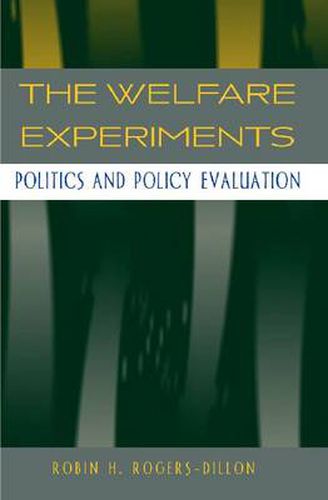Readings Newsletter
Become a Readings Member to make your shopping experience even easier.
Sign in or sign up for free!
You’re not far away from qualifying for FREE standard shipping within Australia
You’ve qualified for FREE standard shipping within Australia
The cart is loading…






Welfare experiments conducted at the state level during the 1990s radically restructured the American welfare state and have played a critical-and unexpected-role in the broader policymaking process. Through these experiments, previously unpopular reform ideas, such as welfare time limits, gained wide and enthusiastic support. Ultimately, the institutional legacy of the old welfare system was broken, new ideas took hold, and the welfare experiments generated a new institutional channel in policymaking.
In this book, Rogers-Dillon argues that these welfare experiments were not simply scientific experiments, as their supporters frequently contend, but a powerful political tool that created a framework within which few could argue successfully against the welfare policy changes. Legislation proposed in 2002 formalized this channel of policymaking, permitting the executive, as opposed to legislative, branches of federal and state governments to renegotiate social policies-an unprecedented change in American policymaking. This book provides unique insight into how social policy is made in the United States, and how that process is changing.
$9.00 standard shipping within Australia
FREE standard shipping within Australia for orders over $100.00
Express & International shipping calculated at checkout
Welfare experiments conducted at the state level during the 1990s radically restructured the American welfare state and have played a critical-and unexpected-role in the broader policymaking process. Through these experiments, previously unpopular reform ideas, such as welfare time limits, gained wide and enthusiastic support. Ultimately, the institutional legacy of the old welfare system was broken, new ideas took hold, and the welfare experiments generated a new institutional channel in policymaking.
In this book, Rogers-Dillon argues that these welfare experiments were not simply scientific experiments, as their supporters frequently contend, but a powerful political tool that created a framework within which few could argue successfully against the welfare policy changes. Legislation proposed in 2002 formalized this channel of policymaking, permitting the executive, as opposed to legislative, branches of federal and state governments to renegotiate social policies-an unprecedented change in American policymaking. This book provides unique insight into how social policy is made in the United States, and how that process is changing.